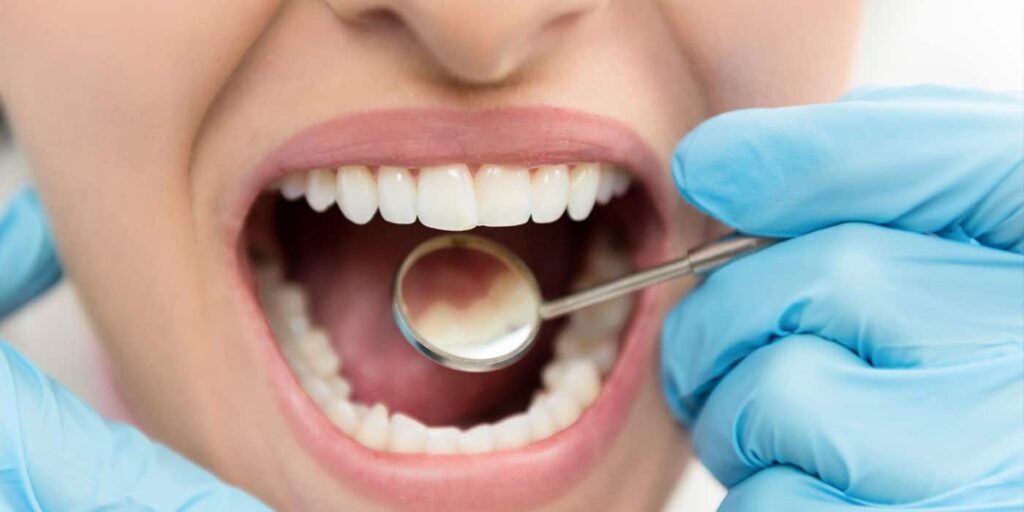Dental Cavities Los Angeles, CA
Dental cavities (also known as dental caries) may be painful—but not necessarily in the beginning, so if you suspect you have teeth that have the telltale tiny holes caused by bacteria that feed on sugar, it’s critical to see a dentist immediately. Some 92% of Americans do have cavities sometime during their lives—it’s second only to the common cold among diseases—and these can lead to problems far more serious.
If you eat sugary and sticky foods or drink sweet beverages (candy, ice cream, cereals, sodas, coffee) and don’t brush and floss right away (or don’t do a good job of it when you do), bacteria form a sticky film called plaque, and this begins to eat away at the hard enamel surface of your teeth. Once the bacteria reach the next layer of the tooth, the dentin, a cavity forms. There are also other risk factors for getting cavities, such as having a dry mouth normally or as a side-effect of medications, or frequent heartburn (because the acid erodes enamel). Infants may get cavities if they’re fed at bedtime.

DENTAL RESTORATIONS
If you do have a cavity, the dentist will first clear out the decay, clean the area, and fill it with material that will make it hard for bacteria to enter. In the old days, the best material for dental fillings was gold, but nowadays porcelain inlays or onlays are great for large cavities, custom-designed by a dental lab, which can be made to look like your natural teeth and are very durable).
The most popular filling material are made of composite resin, a material that can be made to match the color of your own teeth and last 3 to 10 years, but they stain easily from coffee, tea, and tobacco unless you clean them immediately afterwards.
All of these are increasingly requested to replace traditional silver amalgam fillings, out of concern for their mercury content and cosmetic reasons.
If the cavity infection has gotten so deep that it has damaged the root nerves of the tooth, your dentist will explain the need to first do a root canal or a procedure called pulp capping, then repairing the top of the tooth according to its needs, which might include placing a crown on top of the natural tooth.
Unless cavities are treated as soon as possible, they can lead to periodontal disease, the gum infection that will result in the loss of teeth.
The best way to help prevent cavities is to spend a few minutes twice a day to thoroughly floss and brush (with fluoride toothpaste), which may mean bringing a small kit to work and on trips. You may also want to use a high-grade mouthwash afterwards that does more than freshen breath. If you have problem areas, a dental manual mini-pick with bristles or a water pick can help.
Chewing sugar-free gum can actually be helpful if it uses xylitol as the sweetener, since that has been shown to fight caries in several ways (stimulating saliva flow, raise the pH of plaque, and reducing bacteria). Also, try to reduce sugar in your diet to 10% of calories and make sure what you eat and the nutritional supplements you take provide adequate calcium, magnesium, and vitamin D, which are important in the formation of enamel.
To have an examination to see whether you have cavities that need to be treated and find out the status of your overall oral health, call Wilshire Smile Studio now for an appointment: 323-DENTIST (336-8478).
Frequently Asked Questions
Tooth fillings usually last for many years before they need to be replaced. Fillings can wear out over years of chewing, clenching and grinding your teeth and require premature replacements. If you notice signs of wear on your fillings (cracks or worn areas), address these concerns during your regular check-ups or call our office for an appointment before you are due for your cleaning.
Neglect to maintain your fillings may lead to root canals, cracked teeth and pain. Your fillings may (amalgams) shrink and cause leakage. We may recommend replacing your fillings with full or partial crown restorations.
It is very important to know about potential problems to prevent further damage. These are some complications to watch for.
Infection. Old fillings may shrink and will pull away from the tooth. Visit our office as soon as possible to address the problems.
Damage. Fillings can crack, break and fail. This can be caused by pressure while chewing, sports and life accidents. It is very important to address these problems with our office as soon as possible.


